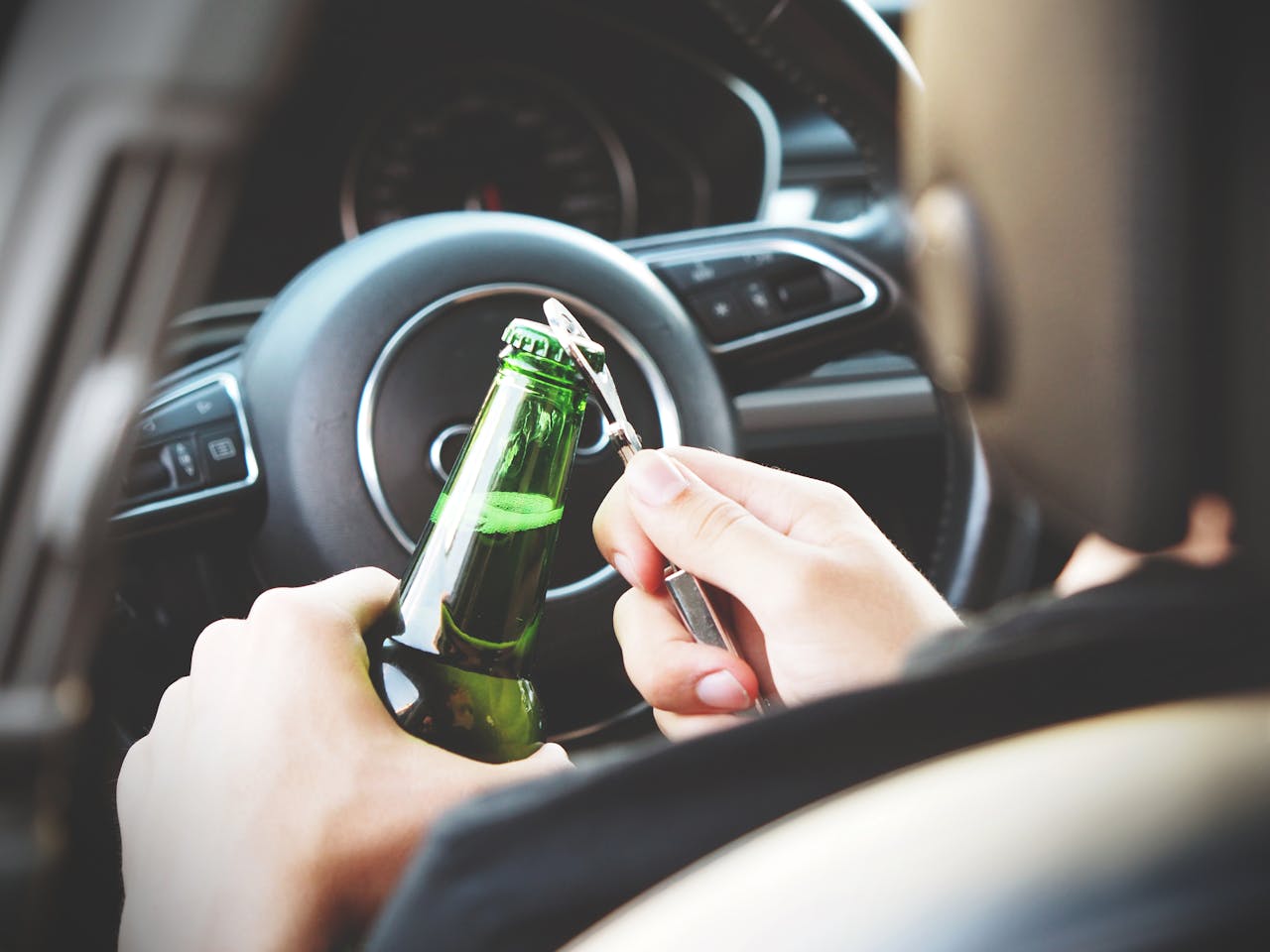In Florida, driving under the influence (DUI) is taken very seriously and is governed by strict laws designed to keep roads safe. The state uses the term “Driving Under the Influence” (DUI) rather than “DWI,” but the meaning is the same: it’s illegal to operate a motor vehicle while impaired by alcohol or drugs.
Blood Alcohol Concentration (BAC) Limits
The legal limit for blood alcohol concentration (BAC) in Florida is 0.08% for drivers aged 21 and over. For commercial drivers, the limit is lower, at 0.04% BAC. For drivers under 21, Florida enforces a zero-tolerance policy, meaning any detectable amount of alcohol (BAC of 0.02% or higher) can result in DUI charges.
What Constitutes DUI?
You can be charged with DUI in Florida if you’re found to be driving or in actual physical control of a vehicle while impaired to the extent your normal faculties are impaired by alcohol, drugs, or a combination of both. This includes:
- Alcohol impairment
- Use of illegal drugs or controlled substances
- Use of prescription medication that impairs your ability to drive safely
Implied Consent Law
Florida has an implied consent law, which means that by driving in the state, you automatically consent to submit to chemical tests (breath, blood, or urine) if a law enforcement officer suspects you of DUI. Refusing to take these tests can result in immediate license suspension, even if you aren’t ultimately convicted of DUI.
Penalties for DUI in Florida
Penalties for DUI in Florida vary depending on whether it’s a first offense or a repeat offense, and whether there are aggravating factors such as injury or property damage. Common penalties include:
First Offense DUI:
- Up to 6 months in jail (often probation instead)
- Fines up to $1,000
- License suspension for 180 days
- Mandatory DUI school and possible community service
Second Offense DUI:
- Up to 9 months in jail
- Fines up to $2,000
- License suspension for 1 year
- Possible ignition interlock device requirement
Third or Subsequent Offenses:
- Up to 12 months in jail
- Fines up to $5,000
- License suspension for 18 months
- Mandatory ignition interlock device
Enhanced Penalties
If your DUI involves serious injury or death, or if you have a minor in the vehicle, the charges and penalties can be more severe, including felony charges.
The Impacts of a DUI on Your Life
A DUI conviction can have far-reaching impacts that extend well beyond the courtroom. While many people initially think about the legal penalties (such as fines or license suspension), the consequences of a DUI can affect nearly every aspect of your personal, professional, and financial life.
Legal Consequences and Driving Privileges
First and foremost, a DUI conviction in Florida leads to legal penalties. These may include jail time, probation, mandatory DUI education programs, hefty fines, and court fees. One of the most immediate and disruptive consequences is the suspension or revocation of your driver’s license. Losing your driving privileges can make it difficult to get to work, attend school, or manage daily responsibilities, especially in areas where public transportation is limited.
Financial Burdens
The financial impact of a DUI can be overwhelming. Beyond fines and court costs, you may face increased insurance premiums, sometimes referred to as “DUI surcharges,” which can double or even triple your car insurance rates.
You might also be required to install an ignition interlock device on your vehicle, which comes with installation and maintenance fees. Additionally, if you miss work due to court appearances or jail time, you could lose income, compounding the financial strain.
Employment and Professional Impact
A DUI conviction can negatively affect your employment prospects. Many employers conduct background checks, and a DUI on your record may raise concerns about your judgment and reliability.
Certain jobs—especially those involving driving, operating heavy machinery, or working with vulnerable populations—may be off-limits after a DUI conviction. For professionals who require licenses or certifications, such as healthcare workers or commercial drivers, a DUI can jeopardize their careers.
Personal and Social Consequences
The stigma associated with a DUI can strain personal relationships with family, friends, and colleagues. Feelings of guilt, embarrassment, and stress are common and can impact your mental health. In some cases, a DUI arrest or conviction may lead to increased scrutiny from loved ones or even affect child custody arrangements.
Long-Term Consequences
A DUI conviction doesn’t just disappear after you serve your sentence. It remains on your criminal record and can influence your life for years to come. This can make it harder to rent housing, obtain loans, or even travel internationally, as some countries deny entry to individuals with certain criminal convictions.
How an Attorney Can Help After a DUI Arrest
A DUI conviction in Florida carries serious and lasting consequences that affect more than just your legal standing. It can disrupt your daily life, burden you financially, threaten your career, and impact your relationships. If you’re facing DUI charges, it’s crucial to seek experienced legal counsel to help protect your rights and work toward the best possible outcome.
Facing a DUI charge can be overwhelming, but a lawyer who specializes in DUI cases can be your strongest ally in mitigating the serious consequences that come with a conviction. These attorneys have in-depth knowledge of Florida’s DUI laws, court procedures, and local prosecutors, allowing them to craft a defense strategy tailored to your situation.
A Miami DUI lawyer will thoroughly investigate the circumstances of your arrest, scrutinizing the legality of the traffic stop, the accuracy of breathalyzer or blood tests, and whether your rights were upheld throughout the process. By identifying weaknesses or errors in the prosecution’s case, your attorney may be able to get charges reduced or even dismissed.
If a conviction is unavoidable, an experienced DUI lawyer can negotiate for reduced penalties, such as shorter license suspensions, minimized fines, or alternative sentencing options like community service or alcohol education programs. They can also guide you through the process of requesting hardship licenses or installing ignition interlock devices in a way that limits disruption to your daily life.












